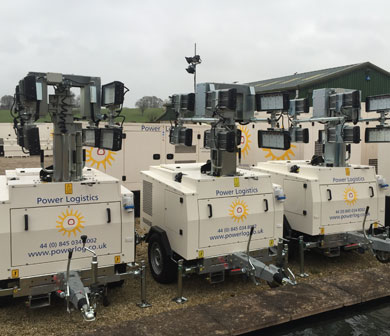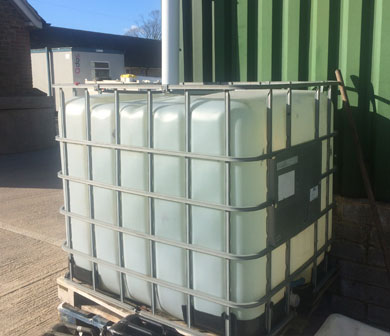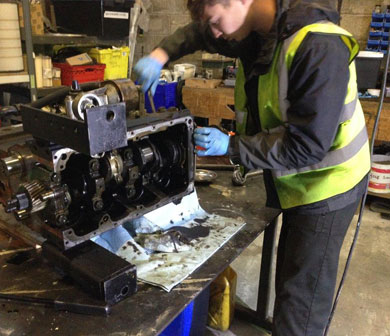LOAD ON DEMAND CONFIGURATION
The data from our power monitoring can be analysed and used to specify more efficient power systems, including using generators in a load demand configuration. These load on demand systems can also be specified and used successfully without monitoring.
What is load on demand?
Previously a 300kw requirement could be delivered with a 300kw generator. Regardless of the power being required at any given point the 300kw generator would be running.
As a diesel engine has the highest level of efficiency and therefore the lowest relative fuel consumption at a load of approximately 80%, if the first generator exceeds 80% the second generator starts and so on. Therefore, a load on demand system may consist of 3 x 100kw units in synchronisation. These units when all running would be able to provide the 300kw required but would automatically switch off if they are not required. Being synchronous means that the end user will not see any interruption during this process.
For example, a production compound during the day may require 300kw of power when everyone is working and an air conditioning system is in full use, however, at night time this load may drop to somewhere in the region of 50kw before rising again the following morning. If this was powered with the 300kw generator it would be running regardless, where as the load on demand system would shut down 2 machines and leave just 1x 100kw running thus saving fuel and emissions.
BATTERY TECHNOLOGY & GENERATORS (Hybrid)
Certain event applications can benefit from generator and battery technology. This hybrid system has been widely used in construction but to be suitable for an event site must be planned and utilised correctly. Not only does the use of battery technology save fuel and CO² but also noise pollution.
A suitable event application for this type of hybrid system would be a remote security cabin for example or festoon lighting through a festival campsite.
When the generator runs it is made to work as efficiently as possible with any spare energy being stored in a battery pack. When the battery is charged and demand for power is low, the generator can turn off and the energy stored in the battery is used to supply the load. When the battery runs low or the load increases the generator is told to start up again. This process is automatic.
The success of this is reliant on the people on site and pre planning of its use as trying to draw too much power from the hybrid drains the batteries quicker, meaning the generator must start up to re-charge the unit. If too much power is consumed, then the generator would never switch off rendering the battery unit useless.
Power Logistics can supply generator and battery hybrid systems. Units available include the Cygnus and Ingenium units.
NON-ROAD MOBILE MACHINERY (NRMM)
Power Logistics’ generators currently conform to the NRMM regulations (as per the practical guide issued in September 2017)
The next step in the NRMM emission requirements is due from 1st September 2020 on all sites within greater London. At this time all generators of a certain size will need to meet a set tier rating. It is currently unclear how this will impact short term projects such as events and further guidance is awaited.








